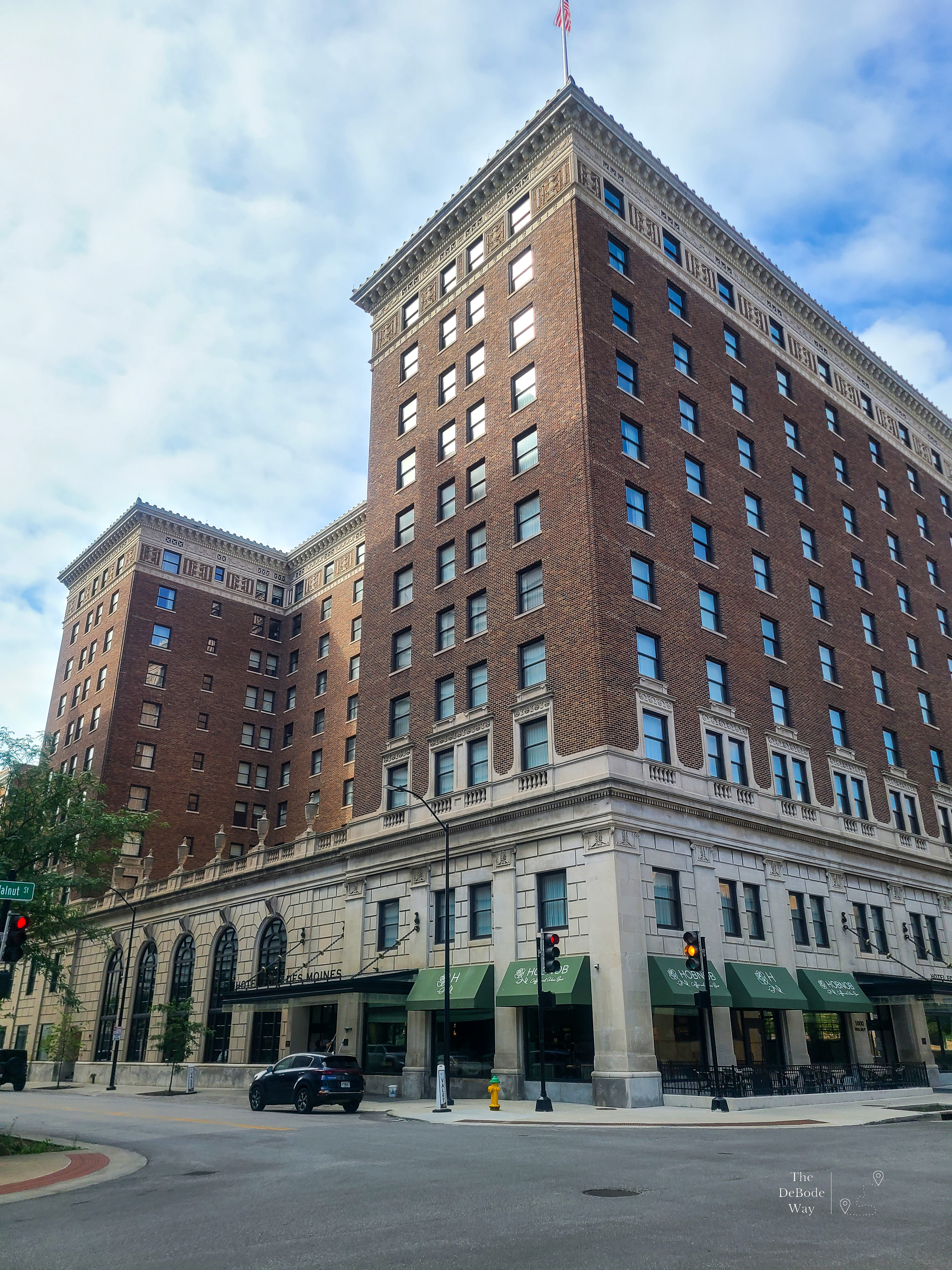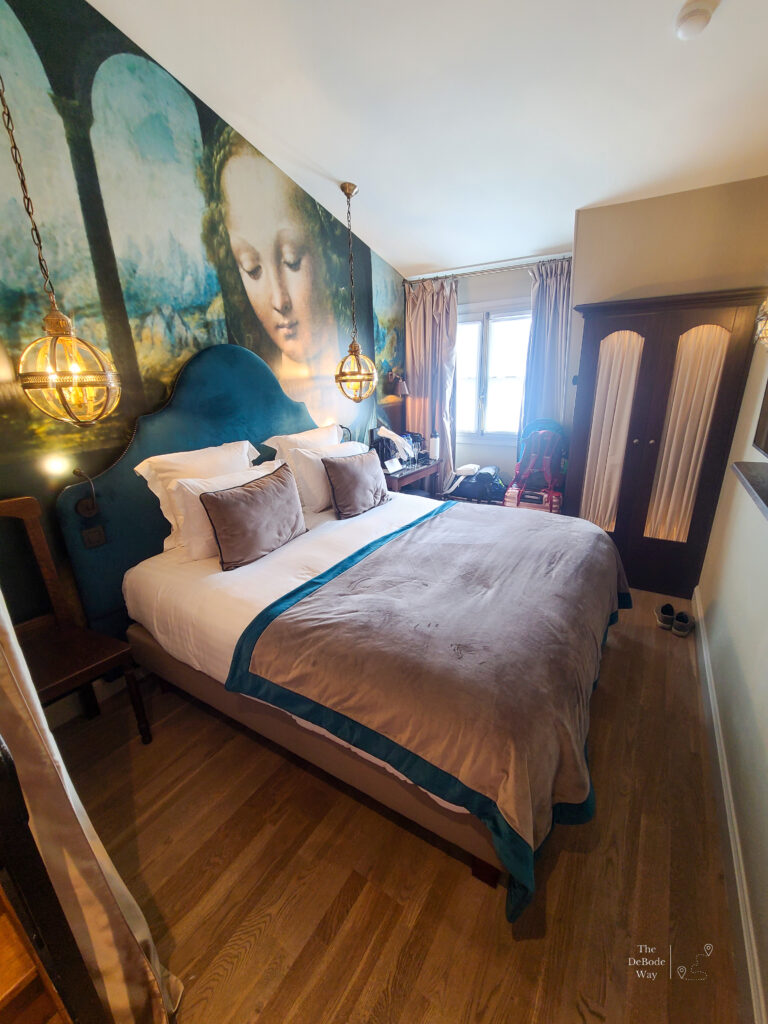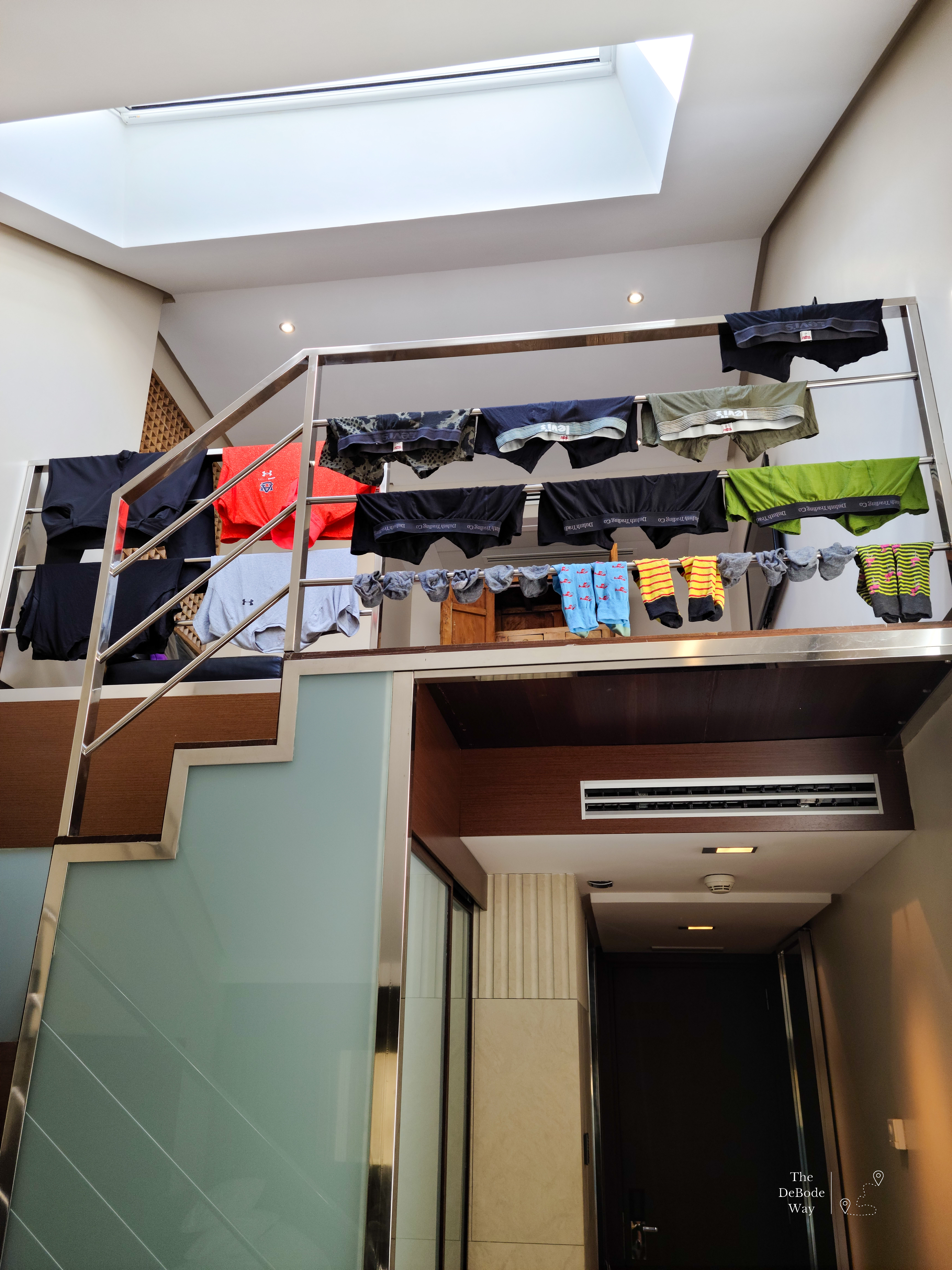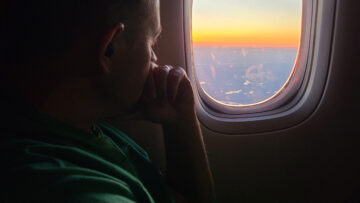When you travel to a new place, where do you stay? If you’re anything like us when we travel, our immediate answer is at a hotel. Seems like a natural place to stay when you’re away from home, right? We think so, at least. But that’s usually only for a few nights at a time, after which we’re either heading somewhere else or back home. But what happens when you stay for more than just a few nights? Where do you stay then?
As we’ve talked about in prior posts, one of the neat things about Jason’s job is it gives him the opportunity to travel. Sometimes he’s traveling with students, sometimes he’s traveling to students. When traveling with students, we’re always staying in hotels of various types because it’s just so much easier than trying to find some other kind of accommodation with enough space. But when he’s traveling to students, that’s a different scenario.
Most often, when Jason travels over the summer to teach his students, he’s in one location for a medium-length period, what we’ll call somewhere between 2 and 3 weeks. In our experience, there are two main choices when it comes to a temporary home for this length of time: apartments or hotels. Until this most recent adventure, he’s always stayed in an apartment, but that changed this time, as he opted to stay at a hotel the entire time instead. So, let’s talk about the pros and cons of each option, at least as we see them.

Apartment Living
There are lots of things to like about having an apartment in a new city, especially when it’s in a foreign country. Having a space that’s really all yours is really nice, especially if you’re coming back from a long day of work. Let’s talk about a few of those things:
- Space. More than anything, having your own apartment (or a flat, if you’re in Europe) gives you the luxury of space that’s all yours. Most often, Jason stays in a one-bedroom apartment, so there’s dedicated space to spread out and relax without feeling cramped. Of course, it’s helpful to keep in mind that ‘space’ is relative, and when you’re in Europe it’s good to know their apartments trend smaller than in the US. Still, having your own space is great.
- Kitchen. The kitchen area isn’t one that we use all the time, but having the option to do so is super important. When you travel, it often means you’re eating new things cooked in new ways. That’s all fine and well, and a big part of why we like traveling; however, it also disrupts your regular eating habits which can cause…let’s just call them ‘issues’. For instance, we tend to eat lots of veggies while at home, but that’s difficult to do when we’re abroad, particularly when we’re in Spain where the diet is heavy on meats, cheeses, and carbs. So, having a kitchen where we can cook our own food can be a game changer and help keep us close to our usual eating habits.
- Work Area. Because we travel most often for work, having a dedicated workspace is really helpful. Sometimes that’s an actual office, while other times it’s a desk or table in a side room or off in the corner of a living room, for example. Regardless, having a place where we can set up shop and get some work done is nice, especially when it’s not on a bed or couch (unless we want it to be!).
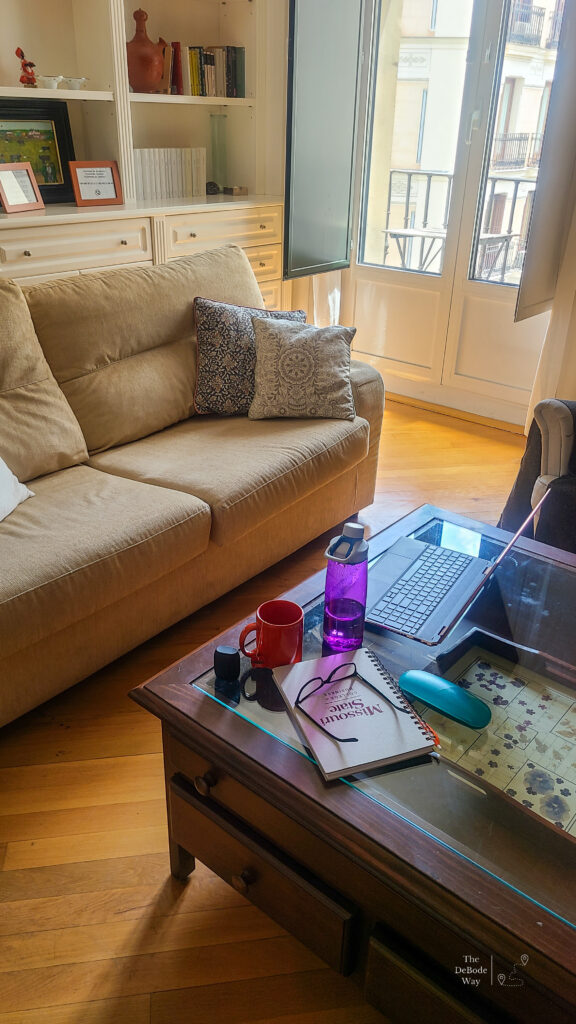
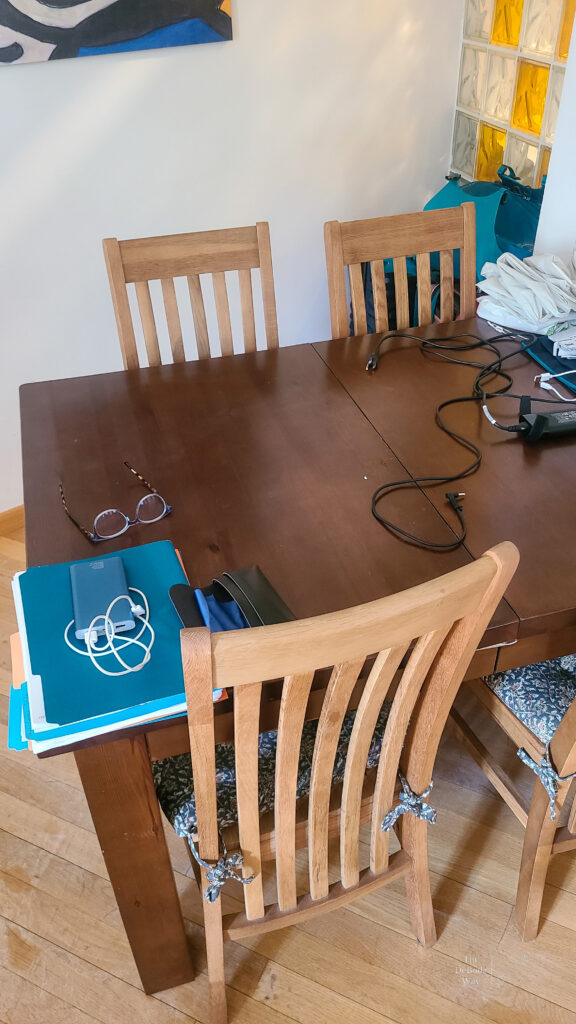
- Location. One of the neat things about apartments is they’re usually in more residential locations. That gives you a different perspective on the places you visit. Being in more populous locations has its benefits, no doubt. But there’s something nice about waking up, walking outside, and being in the middle of a neighborhood, or over a local coffee shop. More often than not, your apartment will be in a quiet part of town that has less traffic, and a very different feel than the more touristy parts of the area. And, if you pick the right apartment, it’ll give you all of this while still being close to local transportation options like train and metro lines.
- Privacy. Above all else, apartments are nice because it’s your space. Most of the apartments we’ve had do not come with cleaning help. Sure, that means we need to keep the place tidy, but it also means no one will ever bother us, come into our apartment, or anything of that nature. To be sure, some apartments will give you the option of visits by a cleaning company, but we’ve never used that option and so we’re relatively confident no one will be in the apartment other than us.
- Laundry. If you get really lucky, you can find an apartment with at least a washing machine available for use. This significantly cuts back on the amount of time you may have to spend washing clothes by hand if you packed carry-on only like we typically do. There is not always a dryer available, so you will be hanging your clothes to dry either way, but the spin cycle on a washing machine does allow them to dry faster than hand wringing before hanging. Toss you clothes in before you head out for the day and hang them up when you get back.
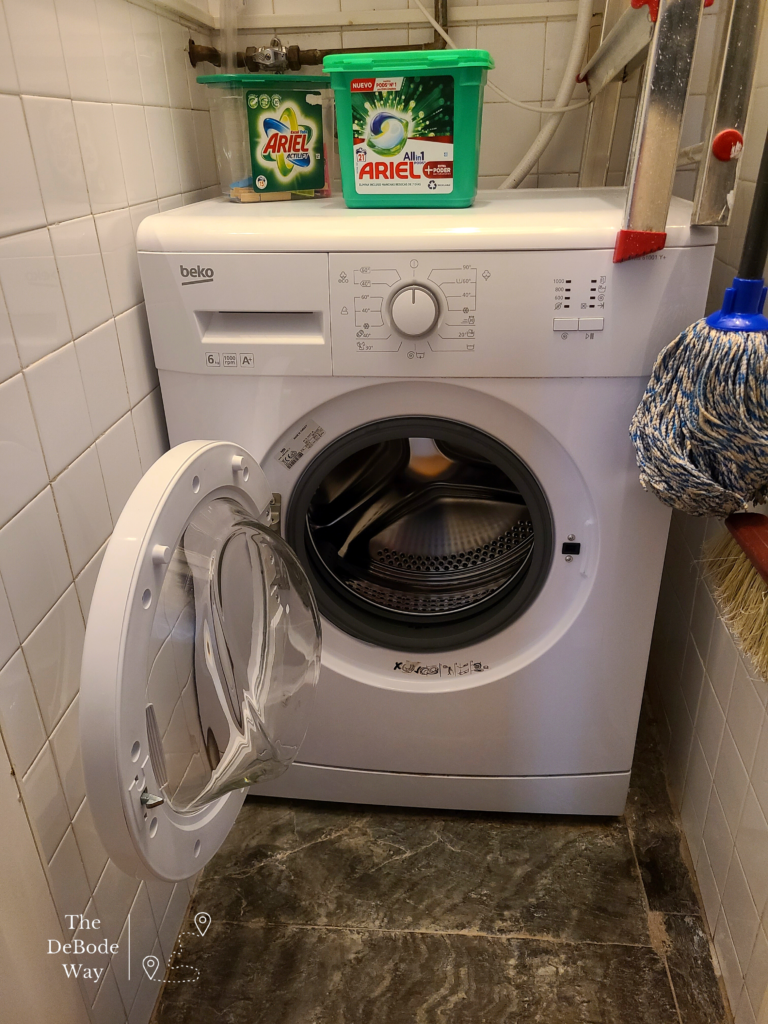
While there are lots of things to like about having your own apartment, there are a few potential drawbacks to keep in mind.
- Scams. More and more, you have to be really careful about travel scams. Our experience has been that the more popular services like Air BNB and VRBO are pretty secure, but we’ve heard about scams when booking on various platforms, or directly with apartment owners. What’s even more concerning is we’ve been hearing about scams associated with these platforms. For example, more than a few folks have said they originally started to book their stay on the platform but then received a message from the owner (or so they thought) outside the platform asking them to book directly, as it saves them (the owner) from paying the associated fees. Sounds great, until you learn it was a scam, so they get your money and you didn’t really book that apartment like you thought you did. All that’s to say, be careful and know what you’re getting into, and always only communicate through the platform you’re booking with.
- Fixes. Most of the time, our apartment stays are uneventful, which is to say, nothing goes wrong. But every now and again, something does. One time, our keys didn’t work. Another time the router died and so the Wi-Fi went down. We’ve had friends who had a water heater start leaking in the apartment, causing a minor flood in their kitchen. Regardless of what happens, when it happens you need to talk to the owner/landlord/management company, rather than calling down to a front desk as you would at a hotel. Even the more responsive owners usually take longer to get things fixed than your hotel, and depending on the fix that’s needed, that can get frustrating.
- Amenities. Most of the apartments we’ve stayed at have no amenities. No gym, restaurant, pool, coffee shop, etc. None of it. Think about it, do you have those things in your apartment building? If you do, you’re living your best life and we’re happy for you. Of course, there are apartments you can rent in buildings/places like that, but they tend to get pretty expensive.
The Hotel Experience
We generally prefer staying at hotels, especially when they earn us points we can use to stay at hotels again. What do we like about hotels? Lots of things, it turns out. Let’s talk about them:
- Location. Most of the hotels we book during our travels are in pretty neat locations. Sometimes they’re in the middle of a city, sometimes within walking distance of parks or neat monuments. Sometimes they’re in castles. Other times they’re in renovated historic buildings or landmarks. All that’s to say, it’s pretty hard to beat the variety of cool locations in which you can find hotels. Of course, that’s part of what you’re paying for, but if you really want that kind of experience and the ability to walk out your front door and onto the local metro, a hotel might just be your best option.
- Amenities. While your apartment might be pretty minimal, your hotel probably isn’t. Pool? Check. Room service? You bet. Concierge? Sometimes, yes. Daily turn-down service? If you like. Gym? Almost always. Different hotel brands will have unique amenities on their properties, but almost all hotels will have some kind of amenities included in your bill. So, if you’re looking for a bit of extra pampering, a hotel might be what you’re looking for.
- Certainty. Probably more than anything, when you book a stay at a hotel you usually have a really good idea of what you’re getting. We try to stay within the Hilton family of hotels as much as possible, both because we like their different hotels, but also because we always know what we’re getting if we stay at a Hilton, Hampton, Hilton Garden Inn, or something along those lines. Even when we stay at one of their unique properties in the Tapestry collection of hotels, we still know it’s affiliated with Hilton and know what to anticipate. That’s rarely the case with an apartment.
That said, there are also lots of reasons you might not want to stay at a hotel:
- Price. Obviously, a nice hotel can set you back a considerable amount of money for a medium-length stay, and this goes up dramatically as you increase the quality of the hotel you book. It’s really easy to find hotels in the $200 – $400 price range, per night. And if you’re staying for 2-3 weeks, that can get expensive quickly. That’s not to say it isn’t worth it, but when numbers get that high, it pays to be sure that’s your best option. However, we have noticed that house or apartment rentals have also increased drastically in price in the past few years, making them more equal to a hotel.
- Experience. If you want to live like a local, a hotel might not be your first choice. Then again, some hotels are nestled among apartments and houses, so it’s not impossible to have that experience with a hotel, but it might be more challenging to find.
- Space. Above all else, space in hotel rooms is a premium, especially when traveling to Europe. For example, during Jason’s most recent stay, he worked from a small loft area in his hotel room from a low-sitting couch and a coffee table. Had this been an apartment, there would have been a kitchen table or even a dedicated office space to get his work done. In an even more recent stay in Paris, we were both hoping to get work done for part of the day but our room was literally about a foot larger than the bed. Suddenly you find yourself turning you bed into a double office, which isn’t exactly comfortable either.
- Eating out. One of the biggest drawbacks of staying at a hotel is your inability to cook your own food. Again, during Jason’s most recent experience, he had no kitchen facility in his hotel room. In fact, he didn’t have a microwave or a refrigerator either. There was a minibar that had a small refrigerator, but it was really small and didn’t give him the option to store his own food. Even if he could have, there was no way to reheat things in his room. That means he had to eat out for every meal, every day. That might sound cool, but eating at restaurants every day can get old (and expensive) fast.
- Laundry Facilities. Rarely will you find an apartment style hotel accommodation with a washing machine available. Most hotels have some sort of laundry service you can use for a fee, but we often resort to washing a few things at a time in the sink and hanging to dry overnight. This typically means you wash and hang things almost every night as part of your daily routine. You could also try to locate a local laundromat but sitting and watching your laundry spin while you’re on vacation is not exactly my idea of fun.
In the end, you know your travel style and life habits better than anyone, so do what makes the most sense for what makes you comfortable. Sometimes we like the apartment option, while other times we prefer a hotel. It just depends on the kind of experience we’re after and how expensive it’ll be to make it happen. And yes, there are other options out there aside from apartments and hotels, but these are what have worked the best for us so far with the type of traveling we typically do.
Happy tavels!

